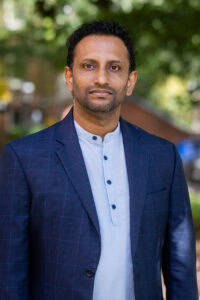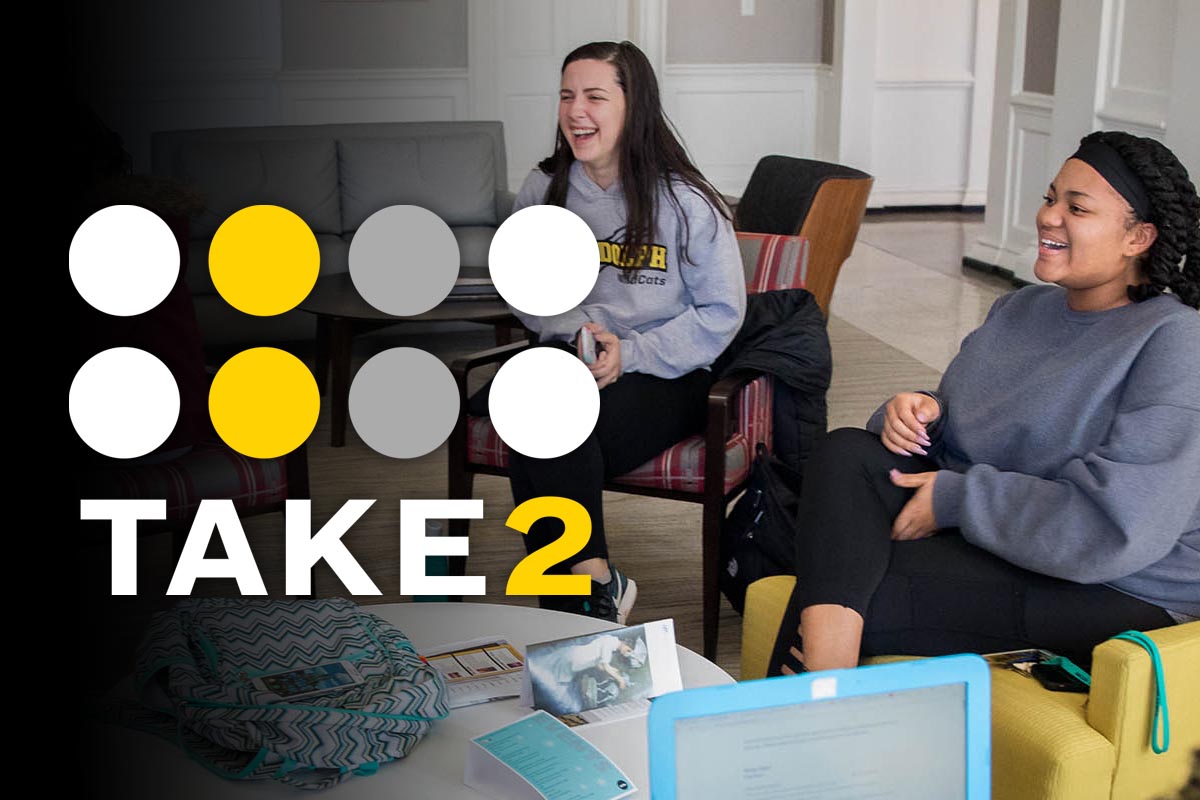New faculty Q&A: Sudesh Mantillake
 Sudesh Mantillake, Randolph College’s Quillian Visiting International Scholar, had a truly global education.
Sudesh Mantillake, Randolph College’s Quillian Visiting International Scholar, had a truly global education.
He earned his undergraduate degree from the University of Peradeniya in his native Sri Lanka, followed by a master’s degree in communication science from the University of Lugano, Switzerland, and a PhD in theatre and performance studies from the University of Maryland.
He is also trained in the Kandyan dance of Sri Lanka, which combines dance, song, and drumming, and the Kathak dance of India, for which dancers use their bodies, facial expressions, and footwork to tell stories based on myths and legends.
“I was an average kid growing up,” said Mantillake, a permanent faculty member at the University of Peradeniya. “I had no dream to become a professor. However, some of my teachers and friends saw that in me and encouraged me. By the time I was doing my undergraduate studies, the seed had been planted. I wanted to become a reputed intellectual in the country. It became my passion.”
Mantillake is a past recipient of the International Teaching Fellowship (the University of Maryland, 2013-2014), the Leonardo Fellowship (University of Lugano, 2006), the University Prize for Academic Excellence (University of Peradeniya, 2004), and Best Solo Traditional Dancer (Ministry of Education, Sri Lanka, 1997).
He serves as vice chair of the International Council for Traditions of Music and Dance National Committee for Sri Lanka and a member of the Research Committee of the International Association for Creative Arts in Education and Therapy.
His research interests include dance historiography, cultural heritage, traditional dance, and nation-building.
At Randolph, Mantillake will teach comparative philosophy and performing arts courses, conduct dance workshops, choreograph a public dance performance and symposium scheduled for February, and lead a group of faculty members on a study abroad seminar to Sri Lanka next spring.
What interested you in coming here to Randolph to relaunch the Quillian Visiting Scholars Program?
First of all, I consider the opportunity a big highlight in my academic career. I like the liberal arts education model that Randolph has implemented, especially initiatives such as TAKE2, which create space for a holistic learning environment for students. I am really interested in immersing myself into the holistic learning experience. I am glad that I am able to share my international experience with the students, staff, and the faculty of Randolph College.
What are your initial impressions of Randolph and its students?
They are very friendly. They also have a very good curiosity that requires them to be good learners. I also like how students take ownership and responsibility for their actions through the College’s Honor System.
Describe your teaching style. What can students expect in your classes?
Pedagogically, I use rhizomatic learning approach inspired by the philosophical concept of the rhizome. This metaphor is used to describe a learning process that is non-linear, interconnected, and constantly evolving. Rhizomatic learning is a way of thinking about learning that emphasizes interconnectedness, flexibility, and adaptability. I also believe that my students should take ownership of their education and so see my role as more of a facilitator in the class. I always leave room for students to interact with the syllabus, me, and the material so they can have ownership of their education. Central to this is questioning and understanding why we learn what we learn. Thus, I use the Socratic method of questioning as a way of both facilitating student interaction and ownership while developing students’ critical thinking skills. This also means that many components of my classes are participatory, and student-led.
Other than formal examinations, I always try to build a practical component into the course where the students can see a tangible output of what they have learned. It could be a research paper, a presentation, a group research project, a performance or an exhibition they put together as a group, or curating an academic conference.
Tags: comparative philosophy, dance, department of performing arts, faculty, new faculty 2024, performing arts, Quillian Visiting International Scholars, Sudesh Mantillake
